Welcome to the lush green planet of tea gardens in Assam, where every sip tells a story of tradition, flavour, and heritage. Settled down in the northeastern part of India, Assam boasts some of the best tea gardens in the world. With over 800 tea estates scattered across its picturesque landscape, Assam is rightly praised as the tea capital of India.
The fertile plains of Assam, nourished by the mighty Brahmaputra River, provide the perfect setting for cultivating the finest Assam tea. From the brisk and bold flavours to the rich and malty notes, each cup of Assam tea embodies the essence of this region’s natural abundance.
As you journey through the tea gardens in Assam, you’ll witness the detailed care and dedication that goes into cultivating the tea bushes. From plucking the tender leaves to processing them with precision, every step in the tea-making process is a labor of love.
Join us as we delve deeper into the alluring world of Assam tea gardens, where every sip is a celebration of nature’s bounty and human craftsmanship.
The origin of Assam Tea-
Assam tea has a rich and fascinating origin story that dates back centuries. It all began in the northeastern region of India, where the indigenous tribes had been brewing and enjoying a type of wild tea for generations. However, it wasn’t until the early 19th century that Assam tea gained recognition on a global scale.
In 1823, a Scottish adventurer and merchant named Robert Bruce bumbled upon the native tea plants while exploring the region. Fascinated by their potential, he sent samples to the botanical gardens in Calcutta for further analysis. The results confirmed that these tea bushes were of the same species as the ones found in China, where tea cultivation had been flourishing for centuries.
This discovery flared immense interest among British planters, who saw Assam as a promising new frontier for tea cultivation. They began establishing tea gardens in the fertile plains along the Brahmaputra River, laying the foundation for what would become one of the world’s largest tea-producing regions.
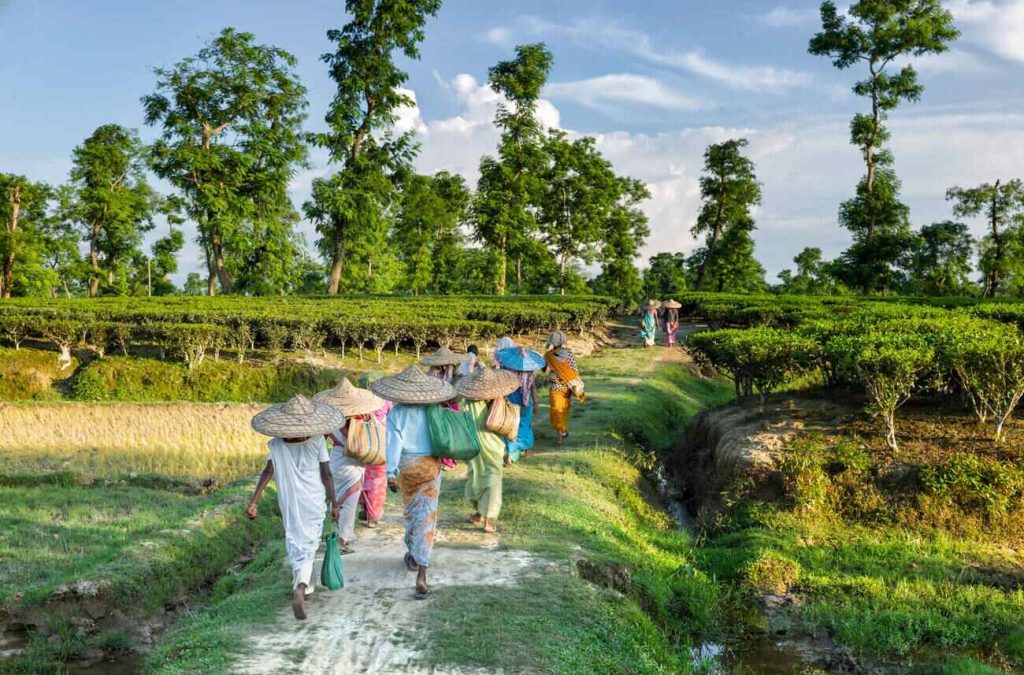
The unique geographical and climatic conditions of Assam, characterized by rich alluvial soil and a humid subtropical climate, verified to be ideal for growing tea. As a result, Assam tea quickly gained a reputation for its bold, robust flavor and distinctive malty notes.
By the mid-19th century, Assam had emerged as a major player in the global tea market, with its tea estates producing vast quantities of high-quality tea. Today, Assam’s tea remains one of the most beloved and sought-after varieties worldwide, cherished for its rich history, bold flavour, and remarkable quality.
Top 15- Tea gardens in Assam –
1. Halmari Tea Estate:
It is among most renowned tea gardens in Assam, known for its exquisite orthodox Assam tea, Halmari consistently produces some of the finest tea in the region. It is the oldest tea garden in Assam.
- Total area: 374 hectares
- Total area under tea: 283 hectares
- Total annual production: 1.2 million kg
- Permanent workforce: 1,200 employees
- Families on estate: Approximately 1,000 families
Location: Khowang, Moranhat district, Dibrugarh, Assam 785669
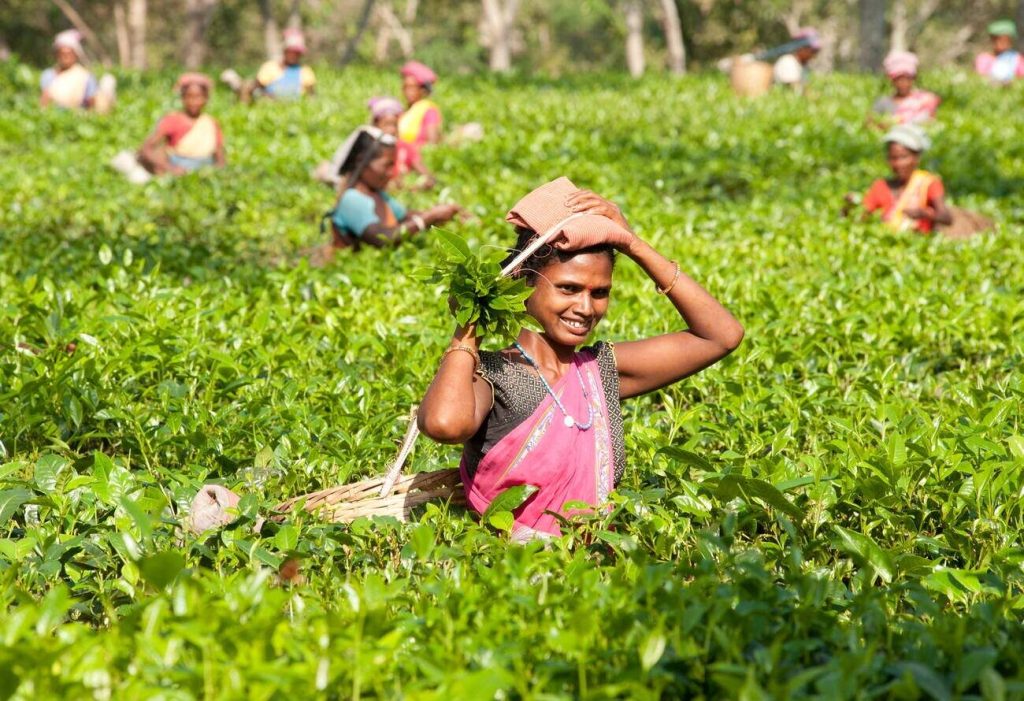
2. Margherita Tea Estate:
Situated in the Tinsukia district, Margherita is celebrated for its picturesque landscape and premium quality tea. This tea garden is also one of the most renowned tea gardens in Assam.
- Total area: 415 hectares
- Total area under tea: 342 hectares
- Total annual production: 1.4 million kg
- Permanent workforce: 1,300 employees
- Families on estate: Around 1,100 families
Location : 7MH6+W88, 112/109/Nla Grant 2 Makum Tea, Assam 786181
3. Manohari Tea Estate:
Known for its specialty teas, Manohari Tea Estate crafts unique blends that are cherished by tea connoisseurs worldwide. This tea garden is also one of the most renowned tea gardens in Assam.
- Total area: 275 hectares
- Total area under tea: 230 hectares
- Total annual production: 1 million kg
- Permanent workforce: 950 employees
- Families on estate: Roughly 800 families
Location: Manohari Tea Estate, Nogaghuli 1/177 Orr, Assam 786012
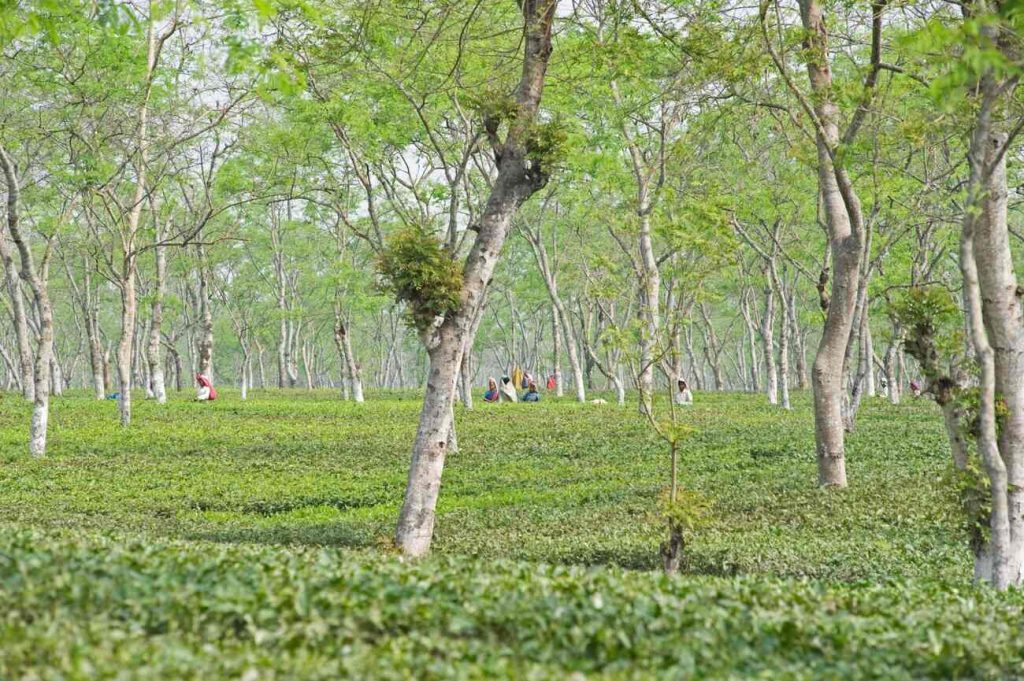
4. Dikom Tea Estate:
With a legacy spanning over a century, Dikom Tea Estate is synonymous with quality and tradition in the Assam tea industry. This tea garden is also one of the most renowned tea gardens in Assam.
- Total area: 542 hectares
- Total area under tea: 456 hectares
- Total annual production: 1.6 million kg
- Permanent workforce: 1,400 employees
- Families on estate: Approximately 1,200 families
Location : Dikom, Dikom Tea Eastate Dikom, Dikom-786101.
5. Majuli Tea Estate:
Nestled on the banks of the Brahmaputra River, Majuli Tea Estate boasts stunning vistas and exceptional teas. This tea garden is also one of the most renowned tea gardens in Assam.
- Total area: 387 hectares
- Total area under tea: 315 hectares
- Total annual production: 1.3 million kg
- Permanent workforce: 1,250 employees
- Families on estate: Around 1,050 families
Location : MAJULI TEA ESTATE, Hattigarh, Uttar Khairabari, Assam 784524
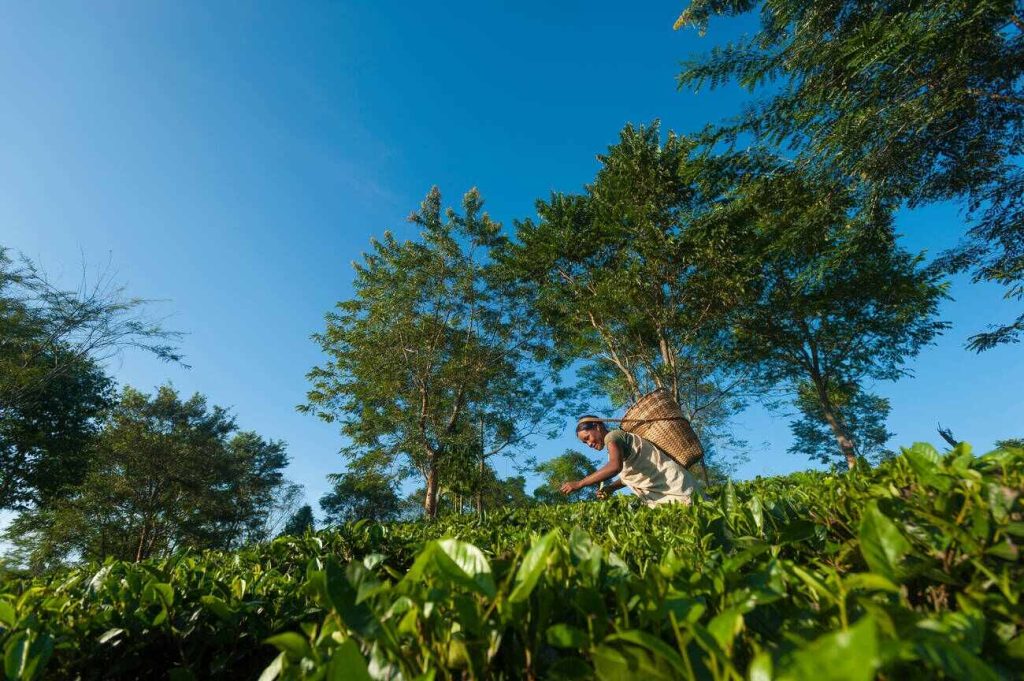
You can also look for Majuli island-12 extraordinary things to do.
6. Hathikuli Tea Estate:
Committed to sustainable farming practices, Hathikuli Tea Estate produces organic teas that captivate with their purity and flavor. This tea garden is also one of the most renowned tea gardens in Assam.
- Total area: 305 hectares
- Total area under tea: 265 hectares
- Total annual production: 1.1 million kg
- Permanent workforce: 1,000 employees
- Families on estate: Roughly 900 families
Location : Hathikuli Tea Estate, Assam Trunk Road, Bokakhat, Golaghat District, Assam, 785109
7. Bokahola Tea Estate:
Recognized for its commitment to quality and innovation, Bokahola Tea Estate is a pioneer in the Assam tea industry. This tea garden is also one of the most renowned tea gardens in Assam.
- Total area: 465 hectares
- Total area under tea: 380 hectares
- Total annual production: 1.5 million kg
- Permanent workforce: 1,350 employees
- Families on estate: Approximately 1,150 families
Location : J694+4J4, Gar-Ali Road, Assam 785630
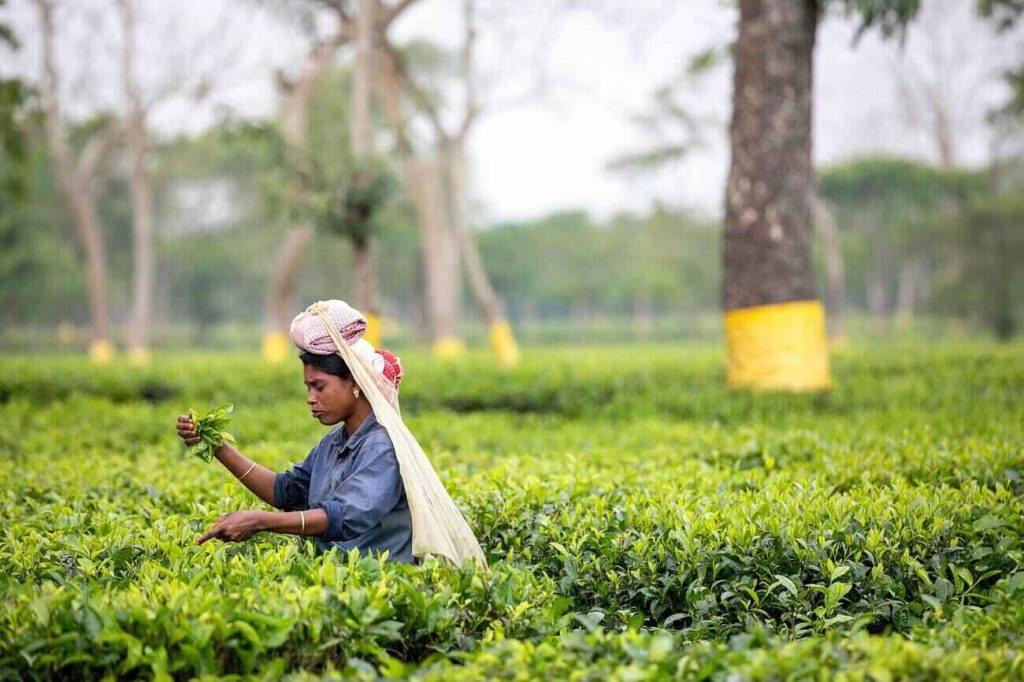
8. Nahorhabi Tea Estate:
With a heritage dating back to the colonial era, Nahorhabi Tea Estate is esteemed for its classic Assam teas. This tea garden is also one of the most renowned tea gardens in Assam.
- Total area: 512 hectares
- Total area under tea: 420 hectares
- Total annual production: 1.7 million kg
- Permanent workforce: 1,500 employees
- Families on estate: Around 1,250 families
Location : Nahorhabi Tea Estate, Lakwa, Assam, India
9. Koomsong Tea Estate:
Situated amidst verdant hills, Koomsong Tea Estate is prized for its scenic beauty and exceptional teas. This tea garden is also one of the most renowned tea gardens in Assam.
- Total area: 324 hectares
- Total area under tea: 270 hectares
- Total annual production: 1.2 million kg
- Permanent workforce: 1,100 employees
- Families on estate: Roughly 950 families
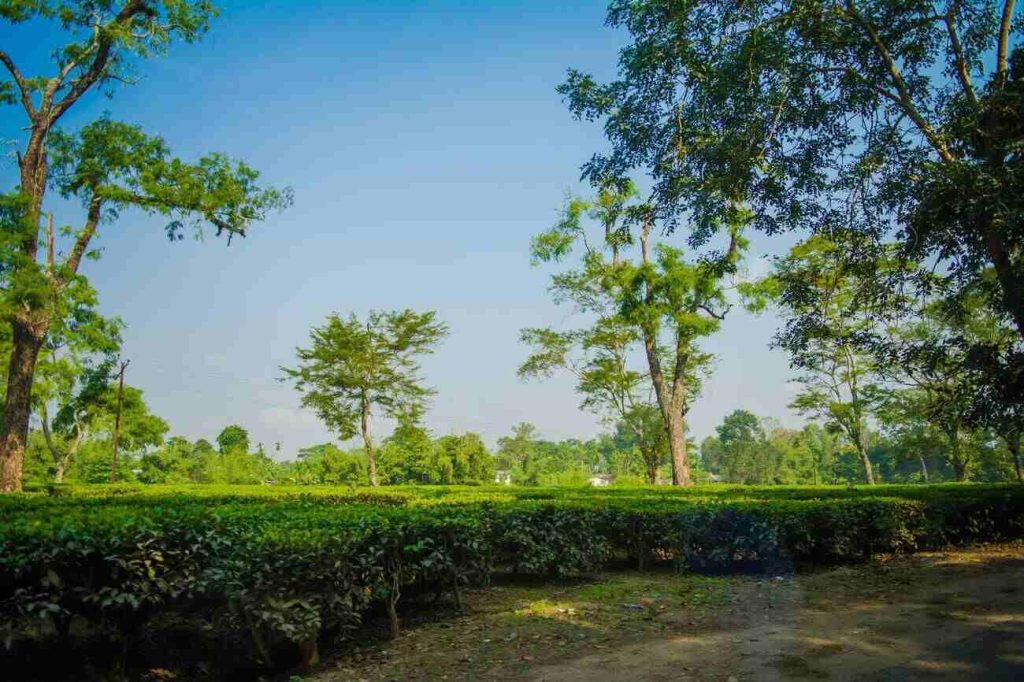
10. Dhoolie Tea Estate:
Dhoolie Tea Estate is revered for its bold and robust Assam teas, cherished by tea enthusiasts around the globe.
- Total area: 438 hectares
- Total area under tea: 370 hectares
- Total annual production: 1.4 million kg
- Permanent workforce: 1,300 employees
- Families on estate: Approximately 1,100 families
Location : Dhoolie Tea Estate , Pin-785630 Titabar, Assam
11. Mangalam Tea Estate:
Known for its commitment to excellence, Mangalam Tea Estate consistently produces teas of unparalleled quality.
- Total area: 381 hectares
- Total area under tea: 315 hectares
- Total annual production: 1.3 million kg
- Permanent workforce: 1,250 employees
- Families on estate: Around 1,050 families
Location: Towkok Grant No.2, Assam
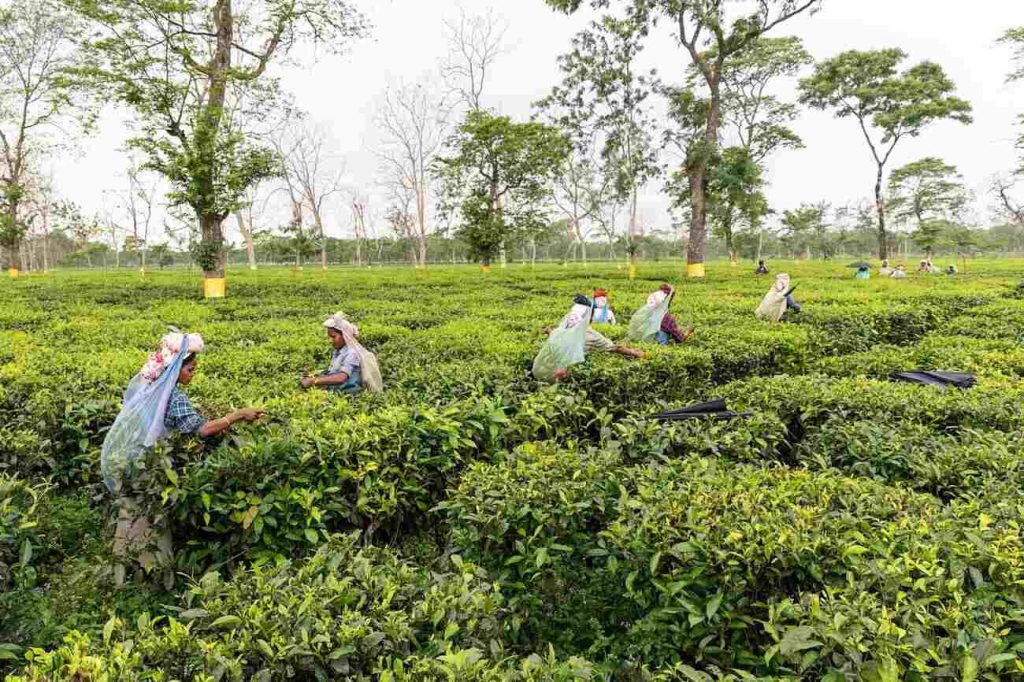
12. Nagrijuli Tea Estate:
Combining traditional methods with modern techniques, Nagrijuli Tea Estate offers a diverse range of premium teas.
- Total area: 295 hectares
- Total area under tea: 245 hectares
- Total annual production: 1.1 million kg
- Permanent workforce: 1,000 employees
- Families on estate: Roughly 900 families
Location: No.2.Piplani, Baksa district, Assam 781368
13. Singlo Tea Estate:
Singlo Tea Estate’s teas are celebrated for their complex flavor profiles and distinctive character.
- Total area: 432 hectares
- Total area under tea: 360 hectares
- Total annual production: 1.4 million kg
- Permanent workforce: 1,350 employees
- Families on estate: Approximately 1,150 families
Location : Amba Complex H S Road Na, Dibrugarh, Assam, India, 786001.
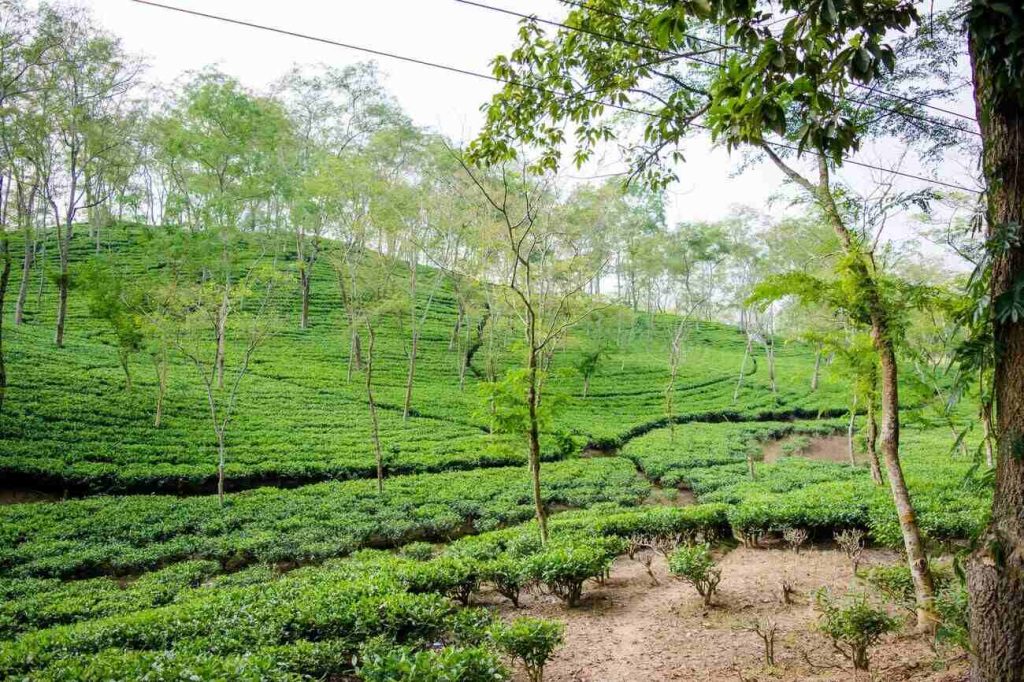
14. Moabund Tea Estate:
Moabund Tea Estate’s teas are prized for their exquisite taste and aroma, making them a favorite among tea lovers.
- Total area: 362 hectares
- Total area under tea: 295 hectares
- Total annual production: 1.2 million kg
- Permanent workforce: 1,200 employees
- Families on estate: Around 1,000 families
15. Sessa Tea Estate:
With its scenic beauty and exceptional teas, Sessa Tea Estate is a must-visit destination for tea enthusiasts exploring Assam.
- Total area: 407 hectares
- Total area under tea: 330 hectares
- Total annual production: 1.3 million kg
- Permanent workforce: 1,250 employees
- Families on estate: Roughly 1,050 families
Location : QP6M+C3W, No.1 Ghogora Req Grant, Assam 784105
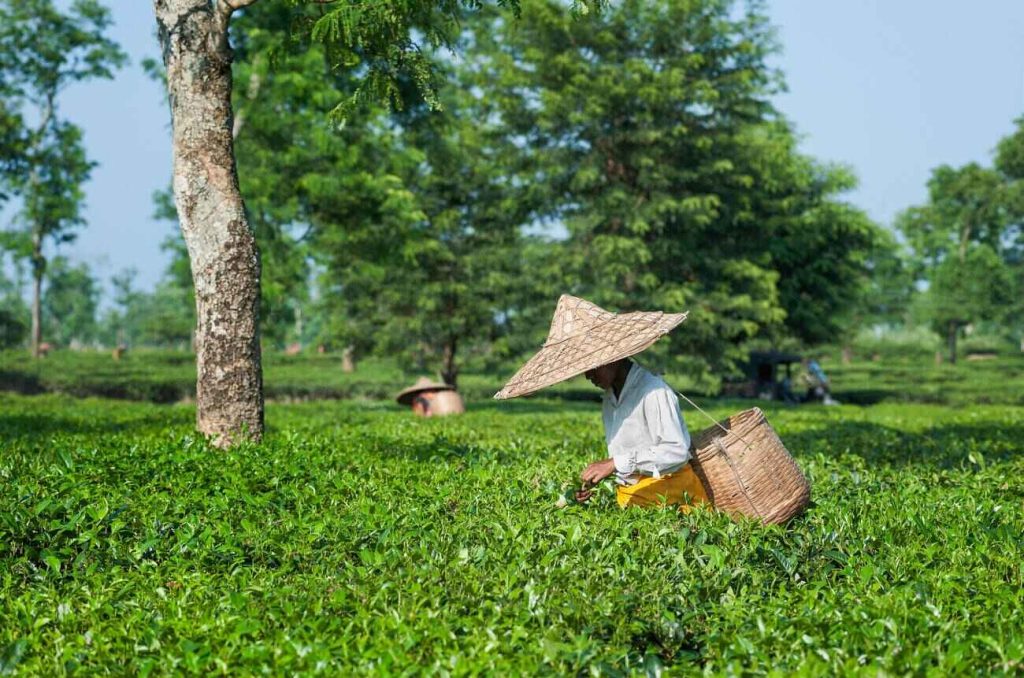
FAQs-
-
Which tea garden is famous in Assam?
Halmari Tea Estate is renowned for its exquisite orthodox Assam tea, consistently producing some of the finest tea in the region.
-
Which district is known as the tea garden of Assam?
The Tinsukia district is celebrated for its numerous tea gardens, including Margherita Tea Estate, known for its picturesque landscape and premium quality tea.
-
How many tea gardens are present in Assam?
Assam is home to numerous tea gardens, with over 800 estates spread across the region.
-
Which city is known as the Tea City of Assam?
Dibrugarh is famously known as the Tea City of Assam, reflecting its importance in the tea industry of the region.
-
Which is the oldest tea garden in Assam?
The oldest tea garden in Assam is the Manjushree Tea Estate, established in 1846, marking the beginning of Assam’s tea industry.
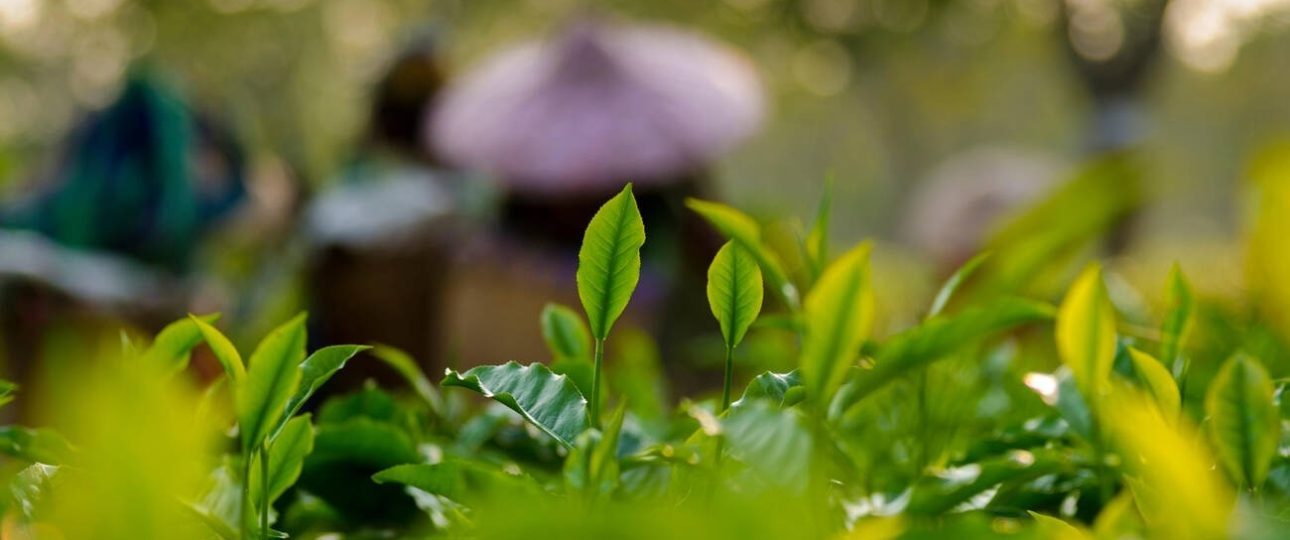


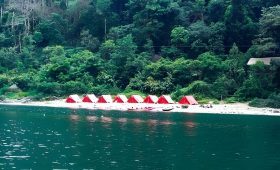
Assam is famous for its lush tea gardens that produce some of the finest tea in the world. A visit to these tea gardens is a must for tea lovers and nature enthusiasts. Enjoy a peaceful stroll amidst the verdant tea bushes and learn about the tea-making process. Don’t forget to sample some freshly brewed Assam tea for a truly immersive experience.
great